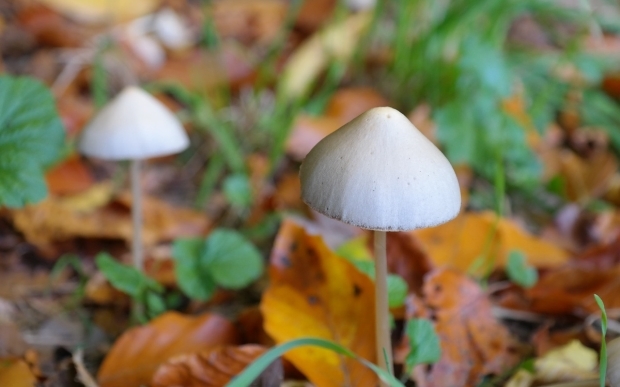
Psilocybin is a naturally occurring psychedelic compound found in magic mushrooms. It's been used in spiritual and religious ceremonies for millennia. It's also used as a recreational drug.
Back in the 1950s, the Swiss chemist Albert Hofmann isolated psilocybin in the lab and Sandoz, the company he worked for, started selling it worldwide for medical use in psychotherapy. It was Hofmann who 20 years earlier had synthesized and studied lysergic acid diethylamide or LSD.
As part of its marketing, Sandoz encouraged psychotherapists and researchers to try their hallucinogens, so they'd better understand the patient experience. Their popularity grew with a flurry of research in US medical centres, prisons and universities, and it didn't take long for these psychedelic substances to be enthusiastically embraced by the 1960s countercultural movement to "turn on, tune in, drop out".
By 1970 these drugs were on Schedule 1 of the Controlled Substances Act in the US, meaning a substance has no accepted medical use and a high potential for abuse. Here in NZ both LSD and psilocybin are classified as Class A drugs under the Misuse of Drugs Act.
After years of being demonised, there's growing scientific interest in these psychoactive substances, and their potential medical and therapeutic effects. There are studies worldwide evaluating the use of psilocybin as a treatment for depression, anxiety and addiction.
Stephen Ross is an Associate Professor in the Department of Psychiatry at NYU School of medicine, who's been involved in a number of studies involving psilocybin.
He told This Way Up's Simon Morton that he is soon to publish a study looking at the effect of psilocybin-assisted psychotherapy among a group of cancer patients.
He says a single dose led to immediate and sustained reductions in anxiety, depression, existential distress and death anxiety, with the effects lasting for up to 6 months. "That's relatively unique in psychiatry. We don't really have a model where a single dose of anything leads to immediate and sustained effects...What we found is therapeutic benefit from a single dose that lasted several months."
In the future he wants to broaden the study to include treatment for alcohol addiction and he is also about to oversee a phase 3 controlled clinical trial involving psilocybin-assisted psychotherapy for cancer patients. "This is significant because phase 3 is the final stage before a drug is developed and if this trial is positive it's possible that in the coming three to seven years psilocybin could be rescheduled for cancer related distress which would be historic and it would then be available as a prescribable medicine...it would be a new therapy and it would change history."
But Mr Ross also says that although the early signs in some of these studies are promising, they are being conducted under strictly controlled and supervised conditions, and involve drugs that are illegal and can be dangerous. So the very clear message is don't try this at home.

